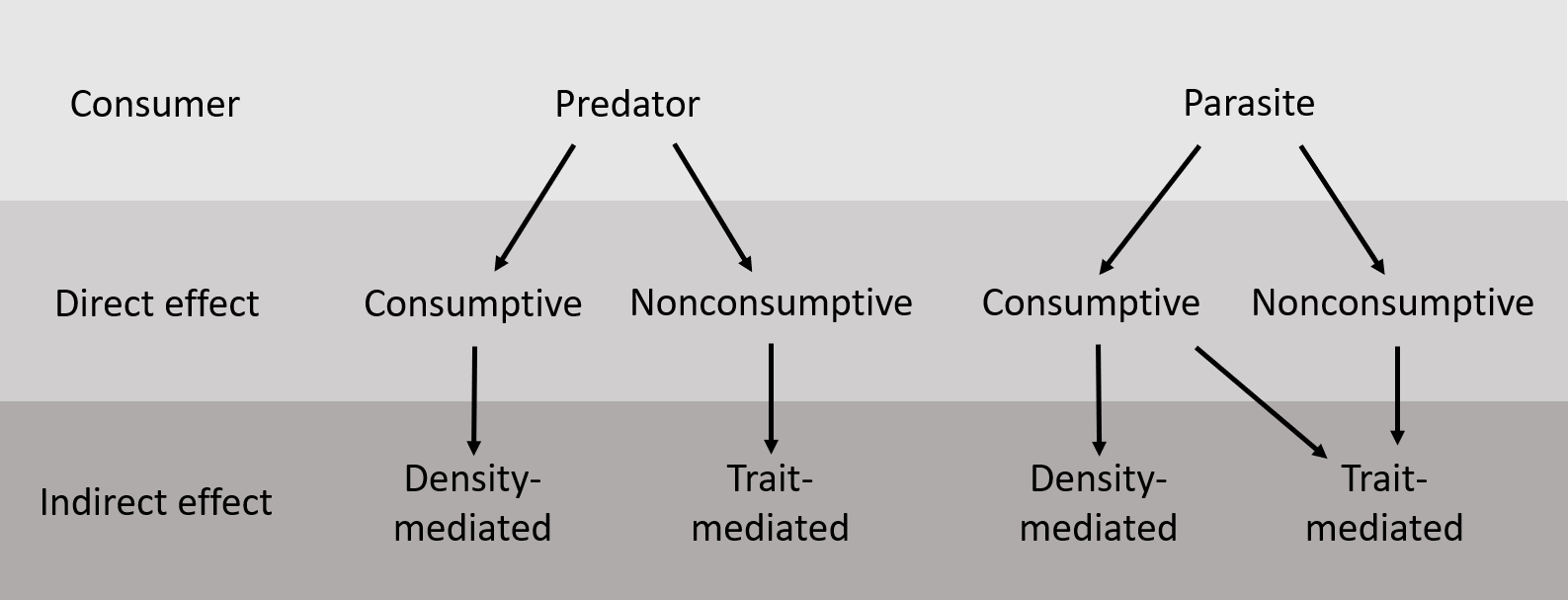DIRECT AND INDIRECT EFFECTS OF PARASITES
Parasitism is the most common consumer strategy on the planet, but only recently have parasites been considered in a community context. Like predators, parasites can have consumptive (via infection) and non-consumptive (via fear/disgust) effects on their victims. And, like predators, parasites can cause density-mediated and trait-mediated indirect effects on species with which their victims interact. However, because parasites are not immediately lethal to their victims, they can cause three (as opposed to two) types of indirect effects.
Recent papers published on this topic:
Recent papers published on this topic:
- Salerno CM, Buck JC, Kamel SJ. 2023. Predation cues amplify the effects of parasites on the personality of a keystone grazer. Journal of Animal Ecology 92: 813-825.
- Harjoe CC, Buck JC, Rohr JR, Roberts CE, Olson DH, Blaustein AR. 2022. Pathogenic fungus causes density- and trait-mediated trophic cascades in an aquatic community. Ecosphere 13: e4043.
- Koprivnikar J, Weinstein SB, Luong L, Buck JC. 2021. Editorial: Ecology and evolution of non-consumptive effects in host-parasite interactions. Frontiers in Ecology and Evolution 9: 779102.
- Newsome T, Barton B, Buck JC, DeBruyn J, Spencer E, Ripple WJ, Barton PS. 2021. Monitoring the dead as an ecosystem indicator. Ecology and Evolution 11: 5844-5856.

